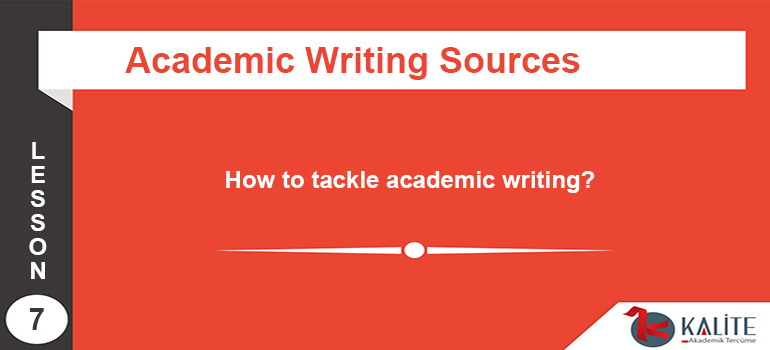
How to tackle academic writing?
Whether you need to write a paper, an essay, a bachelor’s thesis, a master’s thesis or a dissertation, they all need to be written in academic English. Academic English can be very different from the English you use when you write an email, a news article or a letter. We lay down all the different aspects of academic writing and show you how to write a good English academic text.
Specific rules for academic writing
- In academic texts you often make use of abbreviations and acronyms. However, it is very important that you use these correctly. For example, did you know that you should not write contractions in academic texts?
- You usually write down numbers, especially when discussing your results. Do you write these out or do you just note down the numerals? There are very specific rules to make this work!
- Quotes should be introduced correctly and spelled correctly. But what happens when a quote is not spelled correctly by the original author?
- You need to make a choice whether you are going to write British English or American English. We’ve written an article to help you make the right choice and to point out the most important differences.
- Like in any text, you use verb tenses in an academic text such as a thesis. There are some rules as to which tenses to use for which part of your thesis. It is important that you take these into account even before you start writing an academic text.
- Take into account that there are some words that you should not use or definitely avoid to use in academic texts! For instance, you are not always allowed to use the first person pronoun (very often you should avoid first person pronouns altogether).
Common mistakes
You’re a step ahead if you know which mistakes are commonly made and how to avoid them. Have a look at these articles:
- English mistakes commonly made in a thesis
- Punctuation in academic writing: common pitfalls
- Common errors in sentence construction, word choice and clarity and logic
Many mistakes are also made in transition words and phrases. Make sure to avoid such mistakes by reading the article!
What not to do?
In the following articles you find a list of things to avoid, to do and not to do and why:
- Stylistic do’s and don’ts in academic writing
- Avoid rhetorical questions
- Avoid gender bias
- Avoid 2nd person
Important language rules
We’ve also summarized some important language rules to consider when writing an English academic text. Because in what word order should you write a sentence? Or what is the right word order of adjectives and adverbials? And what exactly is a phrasal verb?
Check out how to get your phrasal verbs right and find a list of 47 phrasal verbs and their one-word substitutions!
Writing myths
There’s also some advice to be found in books and on the internet that is simply not true. Have a look at the way Shane Bryson busts these myths and learn how to write English more accurately:
- Myth: It’s an error to split infinitives
- Myth: It’s a stylistic mistake to end a sentence with a preposition
- Myth: Paragraph transitions should be placed at the ends of paragraphs
- Myth: It’s incorrect to start a sentence with “because”
- Myth: It’s incorrect to start a sentence with a coordinating conjunction (and, but, or, for, nor, yet, so)
Other…
We’ve also written about the serial comma and give you some examples of MEAL paragraphs. Finally we go into the topic of how to write a good title. Because only after you’ve finished writing, you make up a good title to make your audience want to read your well-written academic text!


